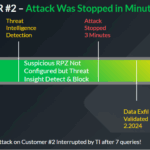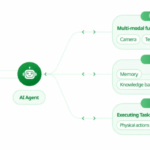
For many graduates with liberal arts degrees, the four years they spent in an undergraduate program are just the beginning of a long academic career that will lead to a terminal degree and then a professorship in history, literature, or the arts. But for others, the idea of a career in academia sounds restrictive and unappealing.
If you want to pursue a career in the private sector, but you also want to keep your focus in the humanities and social sciences, you’ll need to look for post baccalaureate programs that can help you refine your skills and guide you to a specialized career. Not sure where to start? Read on to learn more about three creative career paths for humanities-minded graduates.
Contents
Understand Consumer and Employee Behavior
Psychology graduates who don’t want to make a career out of counseling may feel at a loss for other occupational ideas, but the business world always has a need for experts in human behavior. As a commerce-minded psychology expert, you could find a position as a communications director, a market analyst, or a talent coordinator.
If corporate applications of psychology interest you, a bachelor’s degree and relevant work experience may be enough, but you can also consider a master’s in applied psychology. Before you decide to continue your education, research the opportunities in your intended job market and read more about which qualifications would help you be most competitive.
Work To Improve Educational Outcomes
While a career in education might sound a lot like getting stuck in academia forever, the demands of the job are quite different than if you pursued a professorship. An educational doctorate can prepare you to manage students at either the K-12 or higher education levels. To be an effective educator, you’ll need to have an interest in learning psychology, social justice, and communication.
If you have teaching credentials but want to improve your earning potential, consider enrolling at a university with a credentialed online degree plan so you can complete your studies while you’re employed in the classroom. They offer online education programs that combine rigorous coursework with the research requirements typical of a traditional educational doctorate degree, so don’t worry that you’ll miss out on the experience of a formal learning experience while you work.
Manage the Effects of Information Overload
You might not think to include information and library sciences on your shortlist for an alternative degree program, but opportunities in these areas are numerous and growing. Your aptitude for research, honed as a liberal arts undergraduate, allows you to find good sources, critically evaluate them, and draw well-supported conclusions. These abilities are invaluable in dozens of contexts outside the library; law firms, biomedical companies, and consumer research groups all employ library and information science experts.
Information systems and management is also an excellent field for graduates with some interest in technical fields like data collection and analytics. These areas are in high demand among businesses and public entities alike, who both need help making sense of the massive amounts of demographic and behavioral data available to them.
You don’t have to change your interests to find a stable, rewarding profession. Creative thinking, research, and career-minded education planning can help you discover new ways to use your skills in a way that’s meaningful to you.




















































